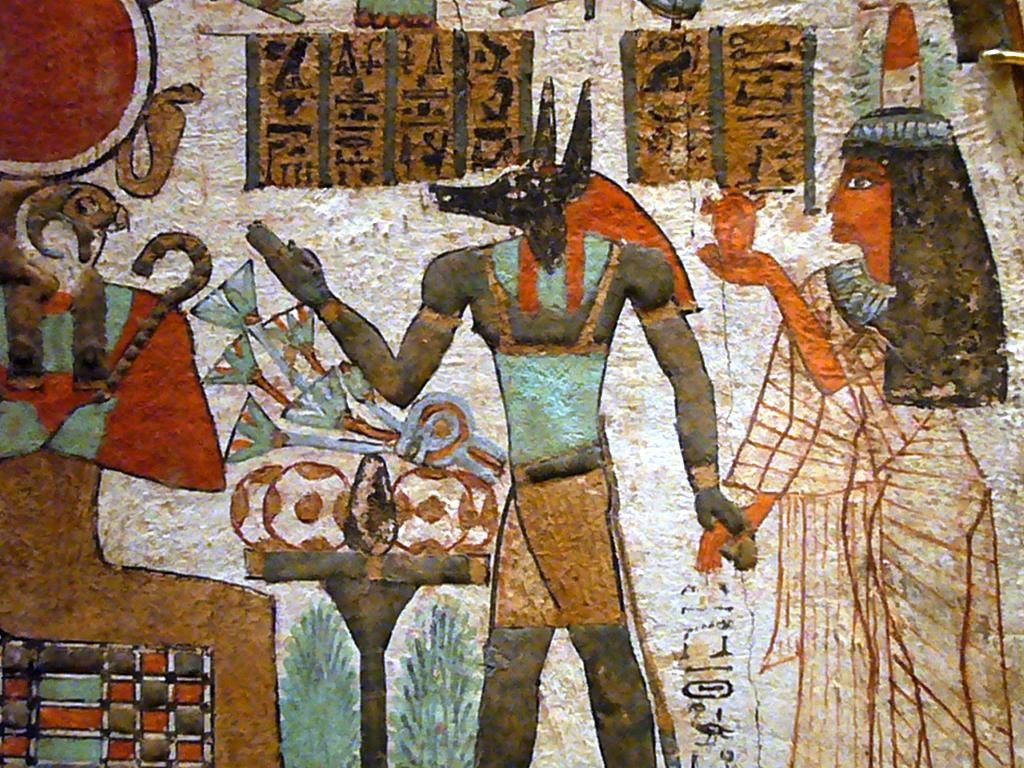Egypt, with its pyramids and other mysteries, is one of the most intriguing places on Earth. The first scientist recorded in history was an Egyptian known as Imhotep, who lived 5,000 years ago. Of the 7 wonders of the ancient world only the pyramids, in Egypt, has survived. Pharaoh Pepi II of Egypt reigned longer than any other known monarch - 74 years.
Egyptian kings had slaves to do all types of chores and perform distasteful deeds. For example, to keep from having flies land on him the king would have several slaves stand nearby, naked and covered with honey. This would lure the flies away from the king and to the slaves.
Egyptians were a very advanced culture. Not only did they build some of the most massive buildings ever but they also invented eye liner and toilet seats. They were the first to use anesthesia and the first to set broken bones. They invented the potter's wheel, the scissors, toothpaste, and even the calendar. Their list of inventions is extraordinarily long including the key, clock, loom, ink, egg hatchery, carpentry joints, and metal pipes.
Women, as long as they weren't slaves, had more rights in ancient Egypt than they have in some present-day countries. A woman could participate in business ventures, own land, represent herself in court, or even become a doctor. Even in those ancient times, should a divorce occur, the woman was entitled to half of the couple's belongings and assets.
Some not-so-pleasant facts are also connected to the Egyptians as well. For contraceptives they used crocodile dung. Baldness was treated with the fats of crocodile, hippo, lion, snake, goose and ibex. Mummies were considered extremely powerful medicine therefore they were ground into a powder and consumed in a potion. Some people killed themselves with an asp because it was believed that those who died from a snakebite would receive immortality.
The Rosetta Stone was discovered during Napoleon's invasion into Egypt. It had been carved in 196 BC and helped us to understand ancient Egyptian hieroglyphics. The stone had the same thing written in three different languages, one of which was understood by us: Greek. From translating the Greek version we could then comprehend many Egyptian symbols later found in caves and other areas.
The deserts of Egypt weren't always deserts. Marine fossils have been found in some areas proving there was once salt water over part of the desert. Geese were considered sacred and were often allowed to wander through a family's home.
Pharaoh's tombs were stocked with everything they might ever need in the afterlife including food, water, clothing, pets, medicine and even games. King Tut's tomb contained many ancient artifacts but one in particular stands out: a first aid kit complete with finger slings and bandages.
It is now believed that Tutankhamen may have been murdered on the orders of his Chief Minister. The Chief Minister later married Tutankhamun's widow and became the ruler of Egypt, giving him a couple of very good motives.
Published by Emma Salk





I dont think so that egyptians were first to use anesthesia........Sushrutha an ancient doctor from india used it first.....He even conducted very complicated surgeries.He did this at the time even egypt was not born
ReplyDeleteThanks for your comment Krish. I didn't know about that but I really appreciate for sharing this valuable info with us. There's no doubt that India has been famous for many centuries for its great culture, Vedas, Sanskrit and many more. It's my wish to visit India once in my lifetime, great country cheers !!
ReplyDelete